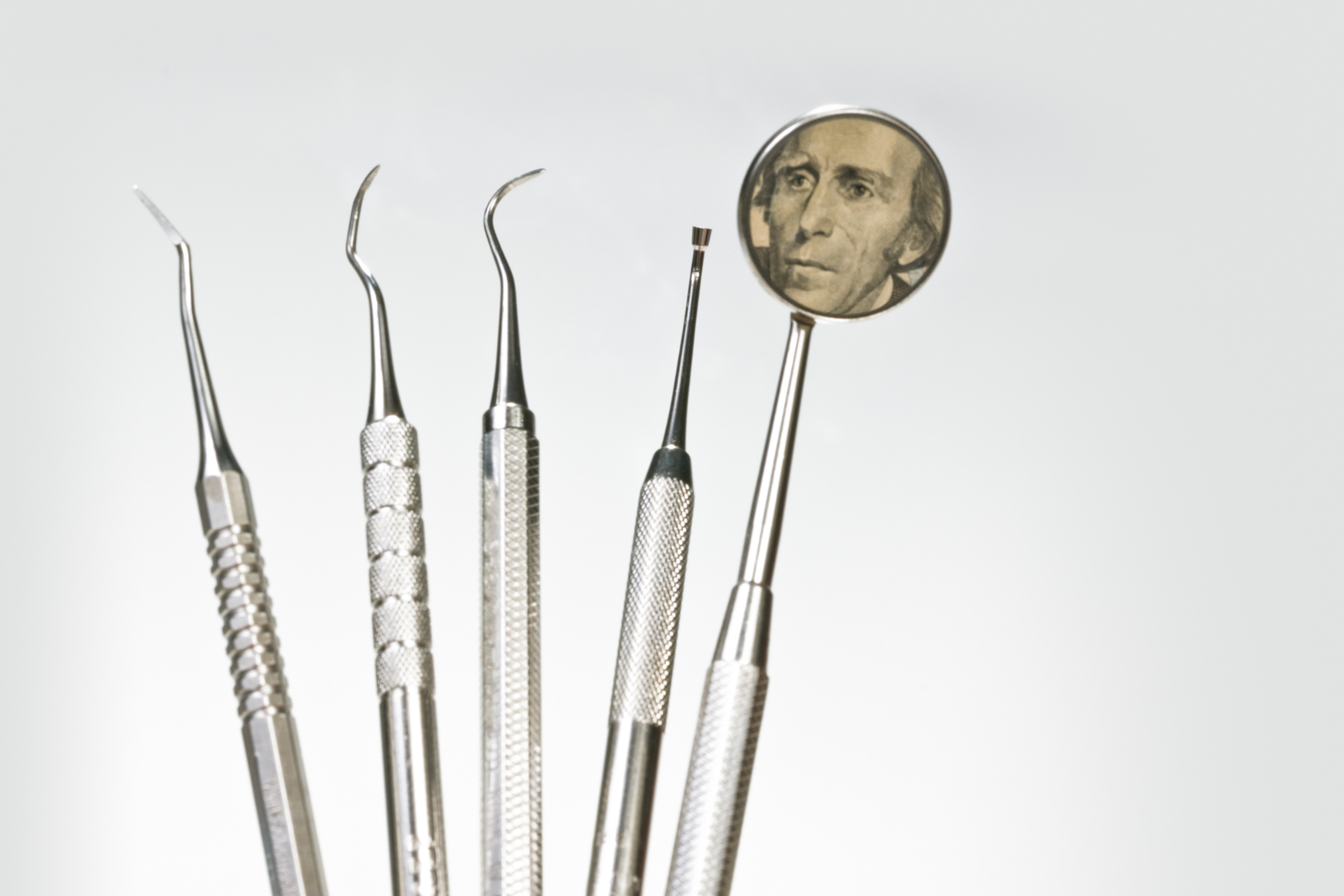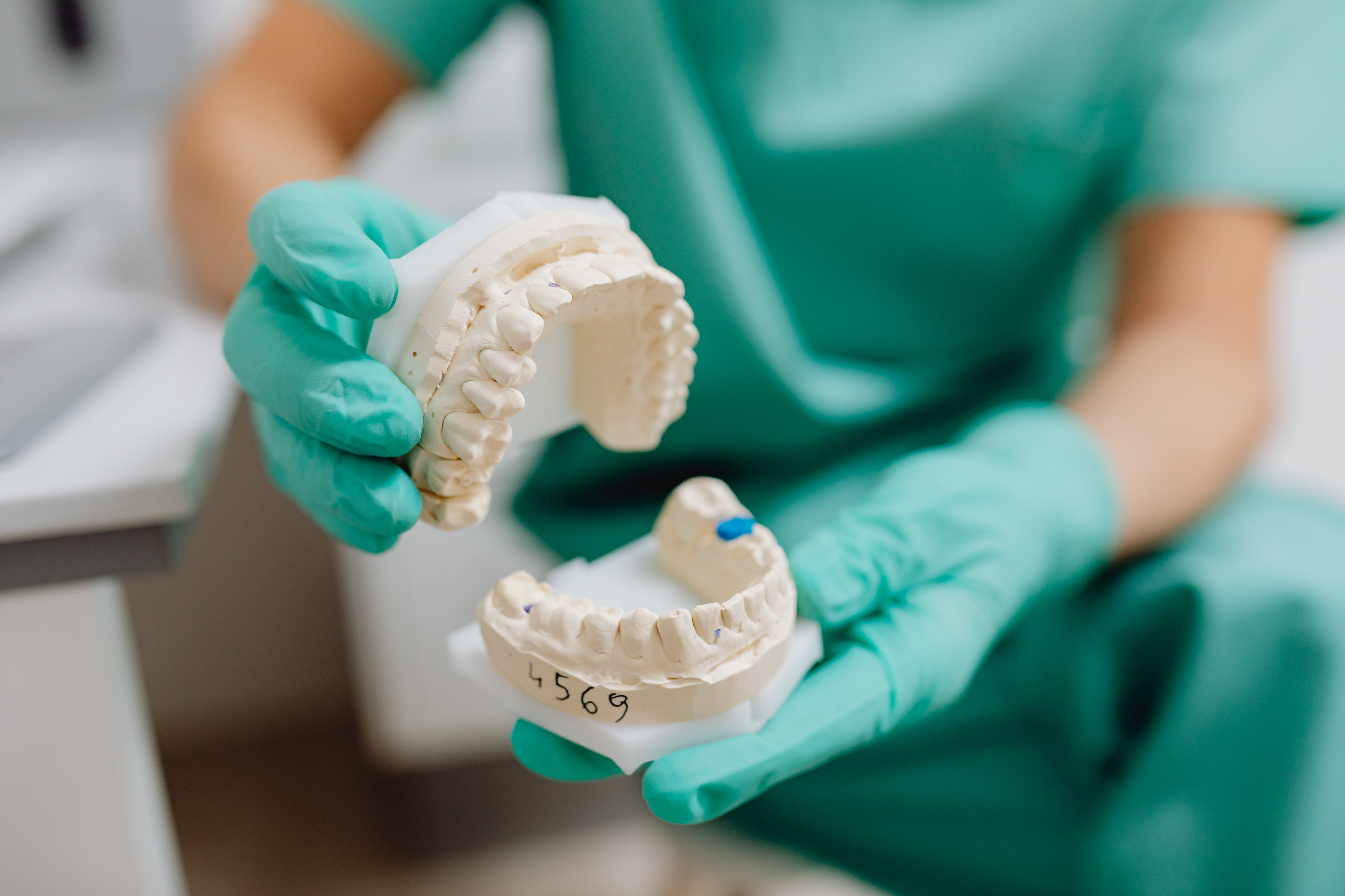Should You Become a Dentist? Pros, Cons, and How to Decide
Considering a career in dentistry? This article explores the pros and cons of becoming a dentist, helping you make an informed decision.
Posted March 6, 2025

Table of Contents
Deciding on a career path can be a challenging process. One profession that often comes to mind is dentistry. Whether you're considering a career change or are just starting your educational journey, it's important to weigh the pros and cons before making a decision. In this article, we will explore the role of a dentist, discuss the advantages and disadvantages of pursuing dentistry, and provide key factors to consider during your decision-making process.
What is the Role of a Dentist?
Before diving into the pros and cons of becoming a dentist, it's important to have a clear understanding of the role. Dentists are responsible for diagnosing and treating oral health issues. They perform various procedures, such as cleanings, fillings, extractions, and root canals. Additionally, they provide preventive care, educate patients on proper oral hygiene, and may specialize in specific areas of dentistry.
When it comes to diagnosing oral health issues, dentists use their expertise and specialized tools to examine patients thoroughly. They carefully review the patient's medical history, taking note of any previous dental treatments or conditions that may impact their current oral health. Dentists also take the time to listen to their patients, discussing any concerns or symptoms they may have. This open communication helps dentists gain a comprehensive understanding of the patient's oral health needs.
Once the examination is complete, dentists develop personalized treatment plans for their patients. These plans take into account the severity of the oral health issue, the patient's overall health, and their specific preferences. Dentists use their technical skills and knowledge to perform procedures such as cleanings, which involve removing plaque and tartar buildup, and fillings, which repair cavities and restore the tooth's structure.
In addition to treating existing oral health issues, dentists play a crucial role in preventive care. They educate patients on proper oral hygiene practices, such as brushing and flossing techniques, and provide guidance on maintaining a healthy diet that promotes good oral health. By emphasizing preventive care, dentists aim to minimize the occurrence of dental problems and promote long-term oral health.
Read: What Do You Learn in Dental School?
Daily Duties and Responsibilities
A typical day for a dentist involves examining patients, reviewing their medical history, and discussing any concerns or symptoms they may have. Dentists use specialized tools and equipment to identify oral health problems and develop treatment plans. They may also work closely with dental assistants and hygienists to ensure proper patient care.
Aside from patient care, dentists also have administrative responsibilities. They manage patient records, schedule appointments, and oversee the overall operation of their dental practice. This includes managing a team of dental professionals, ensuring the availability of necessary supplies and equipment, and staying up-to-date with the latest advancements in dental technology and techniques.
Specializations in Dentistry
There are several specializations within the field of dentistry, including orthodontics, oral and maxillofacial surgery, endodontics, and periodontics. These specializations require additional education and training beyond dental school and allow dentists to focus on specific areas of oral healthcare.
Orthodontics focuses on the alignment and positioning of teeth and jaws. Orthodontists use braces, aligners, and other appliances to correct misalignments and achieve optimal dental and facial aesthetics. They work closely with patients to develop treatment plans that address their unique orthodontic needs.
Oral and maxillofacial surgery involves surgical procedures related to the mouth, jaw, and face. Oral surgeons perform complex extractions, dental implant placements, corrective jaw surgeries, and facial trauma reconstructions. They collaborate with other medical professionals, such as anesthesiologists and plastic surgeons, to provide comprehensive care.
Endodontics specializes in the diagnosis and treatment of dental pulp and root canal issues. Endodontists perform root canal treatments to save infected or damaged teeth. They have advanced knowledge of dental pain management and use specialized techniques and instruments to ensure successful outcomes.
Periodontics focuses on the prevention, diagnosis, and treatment of gum diseases and conditions. Periodontists specialize in gum surgeries, dental implant placements, and the management of oral inflammation. They work closely with patients to develop personalized treatment plans that promote healthy gums and overall oral health.
These specializations within dentistry allow dentists to provide specialized care to patients with specific oral health needs. By pursuing additional education and training, dentists can expand their knowledge and skills, ultimately improving the quality of care they provide.
The Pros of Becoming a Dentist
Now that you have a better understanding of the role, let's explore some of the advantages of pursuing a career in dentistry.
Dentistry is a profession that offers a multitude of benefits and opportunities. From job stability and high demand to the potential for a high income, there are many reasons why becoming a dentist can be a rewarding career choice.
Job Stability and High Demand
One of the most significant advantages of becoming a dentist is the job stability it offers. The demand for dental services continues to grow, ensuring a secure and reliable career path for dentists. Oral health is crucial, and people will always need dental care. Whether it's routine check-ups, fillings, or more complex procedures like root canals or dental implants, the need for dental services remains constant.
Furthermore, advancements in technology have revolutionized the field of dentistry, making treatments more efficient and effective. From digital imaging to laser dentistry, these technological advancements have not only improved patient care but also increased the demand for dental services.
Moreover, with an aging population, the need for dental care becomes even more pronounced. As people age, they often require more extensive dental treatments, such as dentures or dental bridges. This demographic shift further contributes to the increased demand for dental services, ensuring a steady stream of patients for dentists.
Potential for High Income
Another significant advantage of pursuing a career in dentistry is the potential for a high income. Dentistry offers a lucrative career path, especially when compared to many other professions. The average dentist has a high earning potential, which can provide financial security and open doors to a comfortable lifestyle.
However, it's important to note that income can vary depending on various factors. Location plays a crucial role in determining a dentist's earning potential. In areas with a higher cost of living or underserved populations, dentists may command higher fees for their services. Additionally, specialization and experience also play a role in income variation. Dentists who specialize in areas such as orthodontics, oral surgery, or cosmetic dentistry often have higher earning potentials.
Furthermore, dentists have the opportunity to own their own practices, which can significantly impact their income. Owning a dental practice allows dentists to have more control over their earnings and the potential to build a successful business.
Personal Satisfaction and Impact
Beyond the financial rewards, being a dentist offers personal satisfaction and the opportunity to make a positive impact on people's lives. Dentists have the privilege of helping patients achieve and maintain optimal oral health, which has a direct impact on their overall well-being and confidence.
By diagnosing and treating dental issues, dentists can alleviate pain and discomfort, improving the quality of life for their patients. Whether it's relieving toothaches, performing root canals to save infected teeth, or restoring smiles through cosmetic dentistry, dentists play a vital role in enhancing the oral health and overall happiness of their patients.
Moreover, dentists have the ability to educate patients about proper oral hygiene practices, preventive care, and the importance of regular dental check-ups. By promoting good oral health habits, dentists can empower their patients to take control of their dental well-being, leading to long-term positive outcomes.
The satisfaction that comes from seeing patients leave the dental office with improved oral health and renewed confidence is immeasurable. The impact dentists have on their patients' lives can be immensely rewarding and fulfilling, making dentistry a profession that brings both personal and professional satisfaction.
The Cons of Becoming a Dentist
While the field of dentistry offers numerous benefits, it's essential to consider the potential challenges and drawbacks.
Lengthy and Expensive Education
Earning a dental degree requires years of education and training. Dental school typically takes four years to complete after obtaining a bachelor's degree. This extended education period can be financially burdensome, with many students accumulating significant student loan debt.
Read: How to Pay for Dental School: A Guide to Financial Aid
High Levels of Stress and Responsibility
Dentistry can be a highly stressful profession. Dentists are responsible for making critical decisions and providing effective treatments for their patients. The pressure to deliver optimal care while managing the daily operations of a dental practice can be mentally and emotionally demanding.
Physical Demands of the Job
Dentistry can also be physically demanding. Dentists spend long hours standing and performing procedures that may require precision and concentration. These physical demands can lead to fatigue and musculoskeletal issues if proper ergonomic practices are not followed.
Key Factors to Consider Before Deciding
As you weigh the pros and cons of becoming a dentist, here are some important factors to keep in mind.
Personal Interests and Skills
Consider your personal interests, strengths, and skills. Dentistry requires attention to detail, manual dexterity, good communication, and problem-solving abilities. Reflect on whether these align with your natural inclinations and strengths.
Read: DMD vs. DDS: What's the Difference and Which is Better?
Financial Considerations
Assess your financial situation and the potential costs associated with dental school. Research scholarship opportunities, grants, and loan repayment programs that may help alleviate the financial burden. Additionally, consider the earning potential and job prospects in your desired location.
Lifestyle and Work-Life Balance
Think about the lifestyle you desire and the work-life balance you hope to achieve. Dentistry can offer flexible work schedules, but it can also require long hours and weekends, especially for those starting their own practices. Consider whether the demands of the profession align with your personal goals and priorities.
Ultimately, the decision to become a dentist is a personal one. By understanding the role of a dentist, assessing the pros and cons, and considering key factors, you can make an informed decision that aligns with your goals and aspirations. Remember to thoroughly research and speak with professionals in the field to gain further insights and guidance. Good luck on your journey to finding a rewarding career!
Read these next: How to Stand Out in Your Dental School Application and How to Become a Dentist: The Complete Guide to a Fulfilling Career in Dentistry












